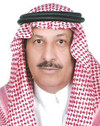Ramadan and importance of distributing extra food

It taught me the meaning of giving and importance to help the needy. I still remember when my mother used to cook and prepare extra food every day during the month of Ramadan for iftar (breaking the fast) and she would ask me to take the food before the time of iftar to some of the less fortunate families in the neighborhood. I used to feel good walking around with the dishes just before the iftar. My family wasn’t the only family that gave food to the poor families. It was traditional in the month of Ramadan for many families in Saudi Arabia to prepare extra food for poor families.
Saudis are known for their generosities to help others. Also, most people give their zakat during the month of Ramadan. In Saudi Arabia, there is no income tax. But there is zakat, which is the third pillar of Islam. In general zakat is calculated by giving away 2.5 percent of the excess cash money and some assets that is not utilized in the previous year.
In the past, everybody knew everyone in the neighborhood. The richer people would extend their contributions to more families or individuals. But time has changed and neighborhoods have expanded and therefore distributing extra food has almost become impossible. Also, there is a need for the year-round support and help to the poor families and not just during the month of Ramadan.
About two years ago, I was chatting with one of the Saudi bankers in Alkhobar, Abdulateef Alrajhi, about life in the past and the Saudi diet. We talked about how food in the past was never wasted. But life in Saudi Arabia gradually changed and Saudi families and individuals became the No. 1 in the world in wasting their food. We see many wedding parties and other occasions in which excessive amount of food ends up in garbage. But at the same time, there are many families who still don’t have money to buy enough food or to have better quality food on the table. The Saudi banker then talked about the initiatives being taken in the Eastern Province by some young men and women to establish what is being called (Eta’am). It is an equivalent to what is known around the world as the food bank.
On May 19, 2011, the first Saudi Food Bank was licensed and registered under the umbrella of the Ministry of Social Affairs. Its main goal is to create awareness in the society about food preservation. The Saudi Food Bank is headed by a former Saudi Aramco employee, Hamad Al-Dhewalia. He is the bank’s general manager and CEO. On May 2010, the initiative to establish this Saudi Food Bank was taken by many Saudi businessmen in the Eastern Province. The Saudi Food Bank is a nonprofit organization established by a group of businessmen to use the excess food for feeding programs and the development of awareness programs. The group wanted to start the program as professionally as it can. A lot of information was gathered from past experiences from many countries around the world. The role of the food bank is not limited to distributing food, but, also on methods to preserve the extra food, creating jobs and providing food to the beneficiaries through a professional system. The food bank was able to pack and distribute more than 200,000 meals by the end of 2012. The food bank also made many presentations, campaigns and exhibits in many cities in the Eastern Province. Nowadays, many five-star hotels and banquet organizers had mutual agreements to have any excess food to be packed and distributed by the food bank. The Saudi Food Bank was a success from the starts. It was given management offices at the Novotel by the hotel owner and they were given many delivery vans by other businessmen and there are plans to build bigger permanent offices for the food bank on a land which will be provided by Alkhobar municipality.
With the amount of success, many people are thinking of extending the role to include other charitable activities. As I have mentioned above, the money from zakat can be utilized and distributed in more professional way which can help eradicate poverty among the less fortunate. This way, members of the society can have close bonds.
At the beginning, the food bank was in the city of Alkhobar, and later on it started to extend its activities to other cities in the Eastern Province. Many lectures were held in Al-Ahsa, Jubail, Qatif and Dammam. And now the bank has many partners to help raise the awareness of the importance of reducing food consumption among the Saudi families and if there is excess food, then it is packed by very well trained Saudis and marked with the date and time of packing, then put in refrigerated mini vans and given to the poor families. These families data information is listed in accordance to the information given to the Saudi Food Bank by other charity organizations in the Eastern Province.
The Saudi Food Bank is gaining more momentum in the society and we see more people are willing to participate. The bank’s managing directors don’t approach any businessmen. It is the other way around. It is the businessmen and women are the ones who approach the first Saudi Food Bank. It shows that the people are willing to help as long as there is transparency in the work of the charity organizations.
• [email protected]
Disclaimer: Views expressed by writers in this section are their own and do not necessarily reflect Arab News' point of view










































